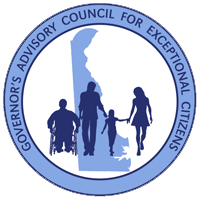Skip to Content
Skip to Navigation

14 to 15 Year Olds
Age 14 — 8th Grade
Education
- Parents and students attend and participate in every IEP meeting. Student should be learning how to lead their IEP meeting.
- Student should participate in program of study, self-advocacy, goal setting and planning coordinated student support activities.
- Parents, students and teachers should continue to discuss goals and how students should work toward achieving them.
- Parents facilitate communication with teachers to let them know how they can support your child's success.
- Include student in discussion regarding their accommodation needs and their current levels of performance. Student may start requesting his or her own accommodations.
- Find out about graduation requirements (specific courses needed, Career Pathways, etc.).
- Begin to have discussions around diploma or alternate achievement standards track for high school graduation.
- Student should attend Transition Conference and LIFE Conferences.
- Expand career exploration.
- Participate in age-appropriate transition assessments in the areas of employment, education/training, and independent living (vocational assessments, interest inventories, interviews).
- Develop post school goals in the areas of employment, education/training, and independent living.
- Develop your anticipated course of study (choose classes through graduation) to assist you in reaching your goals.
- Student should learn and read biographies of famous people with disabilities and how they set goals to reach their dreams.
- Begin working on your Student Success Plan.
- Choose a career pathway, if appropriate.
- Get agency representatives that are likely to pay for adult transition services to attend IEP meetings (DVR,DDDS,...).
Age 15 — 9th Grade
Education
- Continue with items mentioned for age 14.
- Student practices leadership skills.
- Continue to attend every IEP meeting. Be an active participant.
- Participate in age-appropriate transition assessments in the areas of employment, education/training, and independent living (vocational assessments, interest inventories, interviews).
- Review and revise (if needed) post school goals in the areas of employment, education/training, and independent living.
- Review and revise (if needed) your course of study to ensure it will assist you in reaching your post school goals.
- Explore/begin career and technical education programs (Career Pathway for graduation).
- Continue to maintain medical and updated school psychological testing records.
- Continue working on your Student Success Plan.
- Get agency representatives that are likely to pay for adult transition services to attend IEP meetings (DVR,DDDS,...).
Parent/Caregiver and Child Interaction
- Parents start teaching your child shopping skills.
- Incorporate problem-solving activities so they can learn decision-making and responsibility. This also gives them opportunities to learn from mistakes.
- Parents attend transition fairs or conferences with your child and other educational opportunities that offer information about future planning needs such as housing, guardianship, employment, and recreational activities.
- Student should be given chores at home to develop their life skills. Parents should guide them in housekeeping and lawn care if possible.
- Student should get an official picture ID.
- Help your child develop self-determination and self-advocacy skills.
- Discuss your teen's hopes and dreams for adult life.
- Teach money management and banking skills.
- Emphasize positive life style choices.
- Help teen identify their strengths and personality traits to build self-esteem.
- Parents promote appropriate behavior in social settings and at home.
- Help your child become a self-advocate.
- Investigate Drivers Education options and necessary accommodations.
- Teach positive grooming skills and how to be physically fit.
- Teach your teen to get around your community using public transportation.
- Get the Healthy Transitions Mobile App from the University of Delaware's Center for Disabilities Studies. Download on iTunes or Google Play.
- Watch videos created by Nemours: Legal and Financial, After High School, Where to Live and Medical.
- Encourage hobbies and leisure activities that help them be a part of the community.
Eligibility Funding
- Medicaid — Youth should carry and use insurance card.
- SSI — Supplemental Security Income - Plan ahead if SSI is an option. Check for eligibility the month before the person turns 18.
- CHIP — Children's Health Insurance Program State Insurance for Children for families with children under the age of 19 that don't qualify for Medicaid.
- Begin exploring adult options for healthcare coverage if current coverage will end and teach teen how it will work (Deductibles/co-pays/referrals).
Employment
- Discuss the value of work and begin working on employability skills.
- Students should take pre-vocational and career exploration classes to determine their likes and dislikes when looking towards the future.
- Volunteering in the community will give students experience they can put on their resume and references to use when they seek employment.
- Student may want to get a part-time job. Work with the Division of Vocational Rehabilitation (DVR), guidance counselors and transition coordinators to discuss job opportunities for after school or summer.
- Begin to participate in job shadowing experiences to see people working in different settings.
Health
- Teach young adults about proper nutrition and exercise.
- Help them establish a relationship with their primary care physician and start thinking about the transition from pediatric to adult healthcare.
- Parents, have a candid discussion with your child about sexuality and relationships and any affect their medical condition may or may not have.
- Assess your teen's basic knowledge of their special needs. Help them understand their needs now and as they continue to age.









